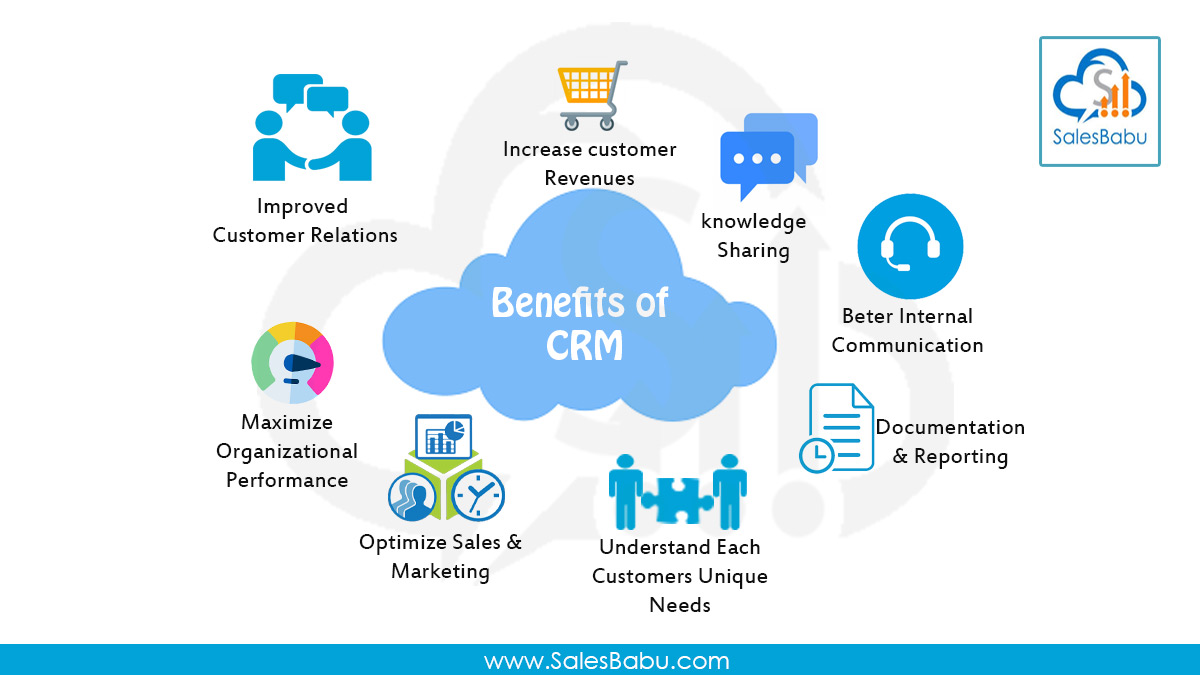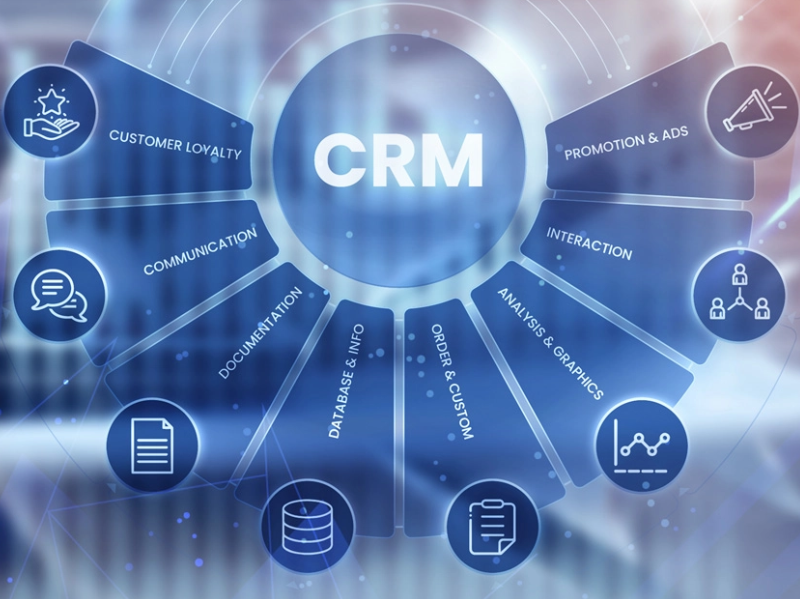In the fast-paced world of business, staying ahead often means embracing the latest tools and technologies. Among these, Customer Relationship Management (CRM) systems stand out as indispensable assets.
Often viewed primarily as a tool for managing customer interactions, the true potential of a CRM extends far beyond this surface-level understanding.
From enhancing operational efficiency and boosting sales to providing deep insights into customer behavior, the hidden benefits of a CRM system are vast and varied. This article will delve into these often overlooked advantages, highlighting how implementing a CRM can transform your business in ways you may not have considered.
Uncovering the Hidden Benefits of Using a CRM System
While the primary benefits of a Customer Relationship Management (CRM) system, such as improved customer service and sales efficiency, are well-known, there are several hidden benefits that often go unnoticed.
These less obvious advantages can significantly enhance your business operations and contribute to long-term growth. By leveraging a CRM system effectively, you can uncover these hidden gems and gain a competitive edge in the market.
Enhanced Data Analytics and Insights
A CRM system not only helps in managing customer interactions but also provides robust data analytics and insights. By analyzing customer data, you can identify trends, preferences, and pain points that can inform your marketing strategies.
This data-driven approach enables you to make more informed decisions, tailor your offerings to meet customer needs, and ultimately increase customer satisfaction and loyalty.
Improved Internal Collaboration
One of the lesser-known benefits of a CRM system is its ability to facilitate better internal collaboration. By centralizing customer information, sales, marketing, and customer service teams can access the same data, ensuring everyone is on the same page.
This reduces miscommunications and streamlines processes, leading to more efficient and effective teamwork. Employees can work together seamlessly to resolve customer issues and enhance the overall customer experience.
Automated Workflow and Process Optimization
CRM systems offer automation capabilities that can streamline many repetitive and time-consuming tasks. From automated email responses to workflow automation, these features can significantly reduce the administrative burden on your team.
By automating routine tasks, your employees can focus on more value-added activities, such as building relationships with customers and driving business growth.
| Hidden Benefit | Description |
|---|---|
| Enhanced Data Analytics and Insights | Provides robust data analytics and insights to inform marketing strategies and improve decision-making. |
| Improved Internal Collaboration | Facilitates better internal collaboration by centralizing customer information and ensuring all teams have access to the same data. |
| Automated Workflow and Process Optimization | Automates repetitive tasks and streamlines processes, reducing administrative burden and allowing employees to focus on value-added activities. |
What are three benefits of using a CRM system?

Using a CRM system offers several benefits for businesses. Here are three key advantages:
Enhanced Customer Relationships
A CRM system helps in building and maintaining strong customer relationships by providing a centralized platform to manage customer interactions and data.
This ensures that all customer interactions are recorded and accessible, allowing businesses to have a comprehensive view of each customer’s history. This can lead to more personalized and relevant communication, improving customer satisfaction and loyalty.
- Centralized customer data for easy access and analysis
- Personalized communication based on customer history and preferences
- Improved customer service through better tracking and follow-up
Increased Sales Efficiency
CRM systems streamline sales processes by automating repetitive tasks, such as data entry and follow-up emails. This allows sales teams to focus more on selling and less on administrative work.
Additionally, CRM systems provide real-time analytics and insights, enabling sales managers to make data-driven decisions and optimize sales strategies.
- Automated lead management and tracking
- Data-driven sales forecasting and pipeline management
- Efficient collaboration and communication within the sales team
Improved Marketing Effectiveness
CRM systems enhance marketing efforts by providing detailed customer insights and analytics. These systems can track customer behavior, preferences, and engagement, which can be used to create more targeted and effective marketing campaigns.
Moreover, CRM systems can integrate with various marketing channels, ensuring a consistent and cohesive message across all platforms.
- Targeted marketing campaigns based on customer data
- Multi-channel marketing integration for consistent messaging
- Real-time performance tracking and analytics for campaign optimization
What are the key benefits of CRM as it relates to best interest or otherwise?

Customer Relationship Management (CRM) systems offer several key benefits that align with the best interests of both businesses and their clients. These systems are designed to enhance customer satisfaction, streamline operations, and drive growth. Here are some of the primary advantages:
1. Enhanced Customer Satisfaction and Loyalty:
CRM systems provide a comprehensive view of customer interactions and preferences, allowing businesses to tailor their services and products to meet individual needs. By personalizing customer experiences, companies can build stronger relationships and foster loyalty. This leads to increased customer retention and reduced churn rates.
- Personalized interactions based on customer history and preferences.
- Timely and relevant communication to address customer needs and concerns.
- A consistent and positive customer experience across all touchpoints.
2. Improved Operational Efficiency:
CRM systems automate many routine tasks, such as data entry, follow-up communications, and lead management. This automation reduces the administrative burden on staff, allowing them to focus on more strategic activities. By streamlining processes, businesses can operate more efficiently and effectively.
- Automated lead nurturing and follow-up to ensure no opportunities are missed.
- Centralized data management to eliminate silos and improve data accuracy.
- Workflow automation to speed up response times and improve customer service.
3. Data-Driven Decision Making:
CRM systems collect and analyze vast amounts of customer data, providing actionable insights that can inform strategic decisions. By leveraging data analytics, businesses can identify trends, predict customer behavior, and optimize marketing strategies. This data-driven approach helps companies stay competitive and responsive to market changes.
- Real-time analytics to monitor key performance indicators (KPIs).
- Customer segmentation and profiling to target marketing efforts more effectively.
- Forecasting and trend analysis to guide business planning and resource allocation.
1. Personalized Customer Experiences
CRM systems enable businesses to gather and analyze vast amounts of customer data, including purchasing history, communication preferences, and demographic information. This data is used to create detailed customer profiles, which can then be leveraged to deliver highly personalized experiences.
Personalization can take many forms, such as customized product recommendations, targeted marketing campaigns, and personalized customer support. By addressing customers by name and offering relevant content, businesses can build stronger, more meaningful relationships that enhance customer satisfaction and loyalty.
- Personalized product recommendations based on purchase history and preferences.
- Targeted marketing campaigns that resonate with individual customer segments.
- Customized customer support that addresses specific needs and issues.
2. Enhanced Customer Retention and Growth
One of the primary goals of CRM is to improve customer retention rates by providing exceptional service and value. CRM systems help businesses stay connected with their customers through regular and meaningful interactions. By maintaining a strong and consistent presence, businesses can foster trust and loyalty.
Additionally, CRM systems can identify upselling and cross-selling opportunities, enabling businesses to grow their revenue and customer lifetime value. By focusing on customer retention and growth, businesses can achieve sustainable success.
- Regular and personalized follow-up communications to keep customers engaged.
- Identification of upselling and cross-selling opportunities to increase revenue.
- Programs and incentives to reward loyal customers and encourage repeat business.
3. Better Resource Allocation and Scalability
CRM systems help businesses optimize resource allocation by providing a clear view of customer needs and business performance. By automating routine tasks and centralizing data, businesses can free up resources to focus on high-impact activities.
This efficiency not only improves day-to-day operations but also enables businesses to scale more effectively. As businesses grow, CRM systems can be scaled to accommodate increasing customer volumes and more complex operations, ensuring that the business remains agile and responsive.
- Automated workflows to reduce manual effort and improve productivity.
- Centralized data management to streamline cross-departmental collaboration.
- Scalable solutions that can grow with the business, supporting expansion and new markets.
What are the pros and cons of a CRM?
A Customer Relationship Management (CRM) system is a powerful tool designed to manage a company’s interactions with current and potential customers.
While it offers numerous benefits, there are also some drawbacks to consider. Understanding both sides can help businesses make an informed decision about whether a CRM is the right fit for their needs.
Benefits of Implementing a CRM
Implementing a CRM system can bring significant advantages to an organization. Here are some of the key benefits:
A CRM system centralizes customer data, making it accessible to all authorized employees. This ensures that everyone has the most up-to-date information, leading to more efficient and effective customer interactions.
- Improved Customer Satisfaction: By having a comprehensive view of customer interactions and preferences, businesses can provide more personalized and relevant service.
- Enhanced Sales Efficiency: CRM tools can automate many sales processes, such as lead management and opportunity tracking, allowing sales teams to focus on closing deals.
- Better Data Analysis: CRMs offer advanced analytics and reporting features that can help businesses identify trends, forecast sales, and make data-driven decisions.
Challenges of Implementing a CRM
While the benefits of a CRM are substantial, there are also several challenges that businesses may face during implementation and usage. Here are some common issues:
One of the main challenges is the initial cost and ongoing maintenance of a CRM system. This includes not only the software itself but also the necessary hardware, training, and support.
- User Resistance: Employees may be resistant to change and hesitant to adopt a new system, especially if they are accustomed to existing processes.
- Data Quality Issues: The effectiveness of a CRM system heavily depends on the quality and accuracy of the data entered. Incomplete or inaccurate data can lead to poor decision-making.
- Integration Complexity: Integrating a CRM with existing systems, such as ERP or marketing automation tools, can be complex and time-consuming.
Best Practices for CRM Success
To maximize the benefits of a CRM system and mitigate potential challenges, businesses should follow certain best practices. Here are some key strategies:
Proper planning and clear objectives are essential for a successful CRM implementation. This includes defining the specific needs and goals of the organization and ensuring that the chosen CRM solution aligns with these requirements.
- Comprehensive Training: Providing thorough training to all users can help overcome resistance and ensure that employees are comfortable and proficient with the new system.
- Data Management: Implementing robust data management practices, such as regular data cleaning and validation, can help maintain the accuracy and reliability of customer information.
- Continuous Improvement: Regularly reviewing and updating the CRM system to meet evolving business needs can help ensure that it continues to deliver value over time.
How does a CRM system help?
A CRM (Customer Relationship Management) system helps businesses in multiple ways by streamlining processes, improving customer interactions, and providing valuable insights. Here’s how a CRM system can benefit your business:
Enhancing Customer Service
A CRM system stores all customer interactions in a centralized database, making it easy for customer service representatives to access a complete history of each customer. This ensures that representatives can quickly resolve issues, provide personalized service, and build stronger relationships.
- Unified Customer Profiles: Each customer has a detailed profile that includes past purchases, communication history, and preferences.
- Automated Responses: CRM systems can automatically send personalized emails and responses, reducing response times and improving customer satisfaction.
- Multi-Channel Support: CRM systems support various communication channels such as email, phone, live chat, and social media, ensuring that customers can reach out in their preferred way.
Improving Sales Efficiency
CRM systems help sales teams manage leads, track sales cycles, and close deals more effectively. By automating routine tasks and providing real-time data, CRM systems can significantly boost sales productivity.
- Lead Management: CRM systems help in capturing, organizing, and prioritizing leads, ensuring that sales teams focus on the most promising opportunities.
- Sales Forecasting: With access to historical data and real-time performance metrics, sales managers can make more accurate forecasts and set better targets.
- Collaboration Tools: CRM systems facilitate collaboration among team members, improving communication and ensuring everyone is on the same page.
Providing Data-Driven Insights
CRM systems collect and analyze vast amounts of customer data, providing actionable insights that can drive strategic decisions. These insights help businesses understand customer behavior, identify trends, and optimize marketing strategies.
- Customer Analytics: CRM systems provide in-depth analytics on customer behavior, preferences, and purchase history, enabling businesses to tailor their offerings.
- Segmentation and Targeting: By segmenting customers into groups based on various criteria, businesses can create targeted marketing campaigns that resonate with specific audiences.
- Performance Metrics: CRM systems track key performance indicators (KPIs) such as customer retention rates, conversion rates, and average order value, helping businesses measure and improve their performance.
Frequently Asked Questions
What are the lesser-known advantages of implementing a CRM system?
Beyond the obvious benefits like improved customer service and increased sales, a CRM system can enhance data security, streamline internal processes, and provide valuable insights through advanced analytics. These features can lead to higher operational efficiency and better strategic decision-making, contributing to long-term business growth and competitiveness.
How can a CRM system improve employee collaboration and productivity?
A CRM system centralizes customer data and communication, making it accessible to all relevant departments. This integration fosters better collaboration by ensuring everyone has the same, up-to-date information. It also reduces redundant tasks, such as data entry, allowing employees to focus on more value-added activities, thereby boosting overall productivity.
Can a CRM system help with compliance and data security?
Yes, a CRM system can significantly enhance compliance and data security. It can enforce data privacy regulations, such as GDPR, by providing tools for data encryption, access controls, and audit trails. These features help protect sensitive customer information, reduce the risk of data breaches, and ensure that your business remains compliant with industry standards and legal requirements.
What role does a CRM system play in customer journey mapping?
A CRM system plays a crucial role in customer journey mapping by collecting and analyzing data from various touchpoints. This data provides a comprehensive view of customer interactions, preferences, and pain points. By understanding the customer journey, businesses can tailor their marketing and sales strategies, personalize customer experiences, and identify areas for improvement, ultimately leading to higher customer satisfaction and loyalty.


